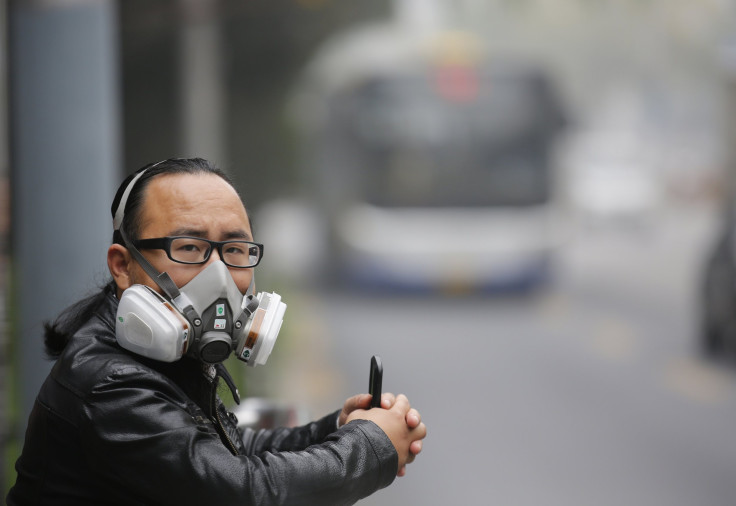Beijing Unveils New Emergency Plan To Curb Air Pollution

The Chinese government on Monday announced new measures to curb air pollution in the capital city of Beijing, which ranks among the most polluted cities in the world. Under the revamped “heavy air pollution emergency plan,” motorists would be limited to driving alternate days when the city announces a red alert -- China’s highest alert level under its four-tier warning system.
Under the new rules, heavy vehicles would be taken off the roads and all factories -- except those needed to maintain the operations in the city -- would be shut down when orange and red alerts are issued. These alerts would be issued 24 hours in advance and would last for three or more days, Beijing’s Environmental Protection Bureau said in a statement released late Monday.
An air quality index of over 200 is defined as “heavy pollution” by the bureau. In 2014, Beijing issued the blue alert 11 times, yellow alert five times, and orange alerts twice, according to a report by Xinhua.
“The city will continue to strengthen its monitoring and forecasting apparatus, and ensure implementation of the heavy air pollution emergency measures in accordance with regulations,” the bureau said in the statement.
Beijing, one of the most populous cities in the world, suffers from chronic air pollution and is often blanketed with a thick cloud of smog. Pollution levels in the city routinely exceed safety limits set by the World Health Organization.
“In the last two years the smog frequency in Beijing has been rising -- we have figures to prove that -- and also the density of the smog is increasing,” Pan Xiao-chuan, a professor at Peking University's School of Public Health, told BBC. “This means the figures of PM 2.5 and PM 10 are really high when there's a big smog in Beijing.”
PM 2.5 and PM 10 refer to particles less than 2.5 micrometers and 10 micrometers in diameter (fine and respirable suspended particles), respectively. These particulates can directly enter the lungs and hence pose a major health risk.
Over the last week, Beijing has also been consistently ranked as “unhealthy” under the U.S. embassy’s air quality index, indicating a particulate matter concentration of nearly 200 microgram per cubic meter.
© Copyright IBTimes 2025. All rights reserved.






















